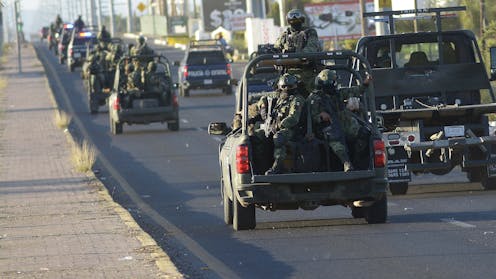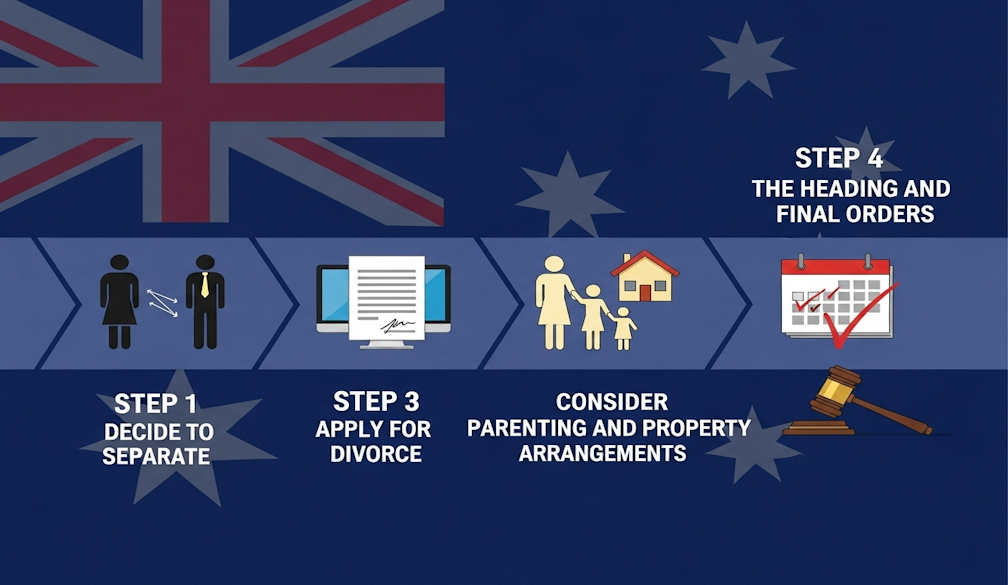US touts collaborative plan to tackle Mexico’s drug cartels – but initiative is met with denial and mistrust south of the border
- Written by Aileen Teague, Assistant Professor, Department of International Affairs, Texas A&M University

A new plan to dismantle cartel-run drug-smuggling corridors along the U.S. southern border was announced by the U.S. administration in mid-August 2025[1] to great fanfare.
“Project Portero[2]” will see the Drug Enforcement Administration collaborate with Mexican law enforcement, prosecutors, defense officials and members of the intelligence community to establish a coordinated strategy striking at the heart of drug gangs’ command-and-control[3]. DEA Administrator Terrance Cole described the initiative[4] as “a bold first step in a new era of cross-border enforcement,” adding: “We will pursue it relentlessly until these violent organizations are dismantled.”
The problem? Mexico’s president, Claudia Sheinbaum, denied that any such initiative exists[5].
“The DEA issues the statement, we don’t know based on what,” said Sheinbaum on Aug. 19[6]. “We haven’t reached any agreement — none of the security institutions have — with the DEA.”
The United States’ and Mexico’s seemingly divergent positions against the drug trade raise doubts about the nations’ ability to work together meaningfully to curb the fentanyl trade.
And any concerns Mexican authorities may have harbored about working with President Donald Trump will surely not have been assuaged by U.S. unilateral military strikes on Venezuelan boats[7] the White House alleges were trafficking fentanyl. Venezuela’s president, Nicolás Maduro, condemned the action as a “military attack on civilians not at war[8].”
In Mexico, Sheinbaum already walks a fine line between negotiating with Trump on issues like migration and tariffs and protecting Mexican sovereignty. In the United States, Republicans have increasingly raised the prospect of sending the U.S. military into Mexico – an idea that has seemingly become the “litmus test[10]” for conservatives in judging who is serious about combating fentanyl.
Yet different interests and approaches to policing drugs, especially using military force, have long been at play in the countries’ precarious collaboration against narcotics. I explore these divergences in the soon-to-be-published “Policing on Drugs” – a prehistory of U.S. and Mexican antidrug efforts[11] from 1969 to 2000.
In practice, Condor and campaigns like it illustrate the different interests that U.S. and Mexican agents brought to drug enforcement and the precarity of bilateral antidrug collaboration. More concerned with the herbicidal aspects of Condor, the United States paid considerably less attention to the Mexican army’s 10,000-man effort on the ground, which aggressively policed the countryside for drugs, producers and dissidents.
Downplaying collaboration
In its collaboration with the United States, Mexico was successful at aligning itself with U.S. security imperatives — such as during the Cold War and the war on drugs — tailoring U.S. policies and aid to its own security challenges. But this only intensified the coercive capacities of the Mexican state and its enforcement.
Drawing from U.S. resources, the Mexican government tailored aspects of aggressive policing[17] to its own security objectives, such as squashing anti-government sentiments.
But U.S. intervention was incredibly unpopular among the Mexican population. As a result, Mexican leaders had to constantly downplay any cooperation with the United States, even as it willingly – and sometimes enthusiastically – adopted U.S. policing tools and strategies[18] to address internal Mexican security issues. Sheinbaum appears to be drawing from the same playbook today.
Creeping militarization
The 1985 torture and murder of DEA agent Enrique “Kiki” Camarena[19] by Mexican drug lords in Guadalajara proved a pivotal moment in U.S.-Mexican antidrug cooperation.
It highlighted the increasingly important role undercover U.S. agents played inside Mexico following Condor’s initial execution. But more, Camarena’s murder forced Mexico – seemingly unable to prevent drug violence – to cede sovereignty to the United States[20] in their drug-policing efforts, as the country’s drug trafficking organizations were becoming more powerful than the Mexican state.
Since then, the image of DEA agents operating extraterritorially in Mexico has become hackneyed, but it continues.
The signing of the North American Free Trade Agreement[22] in 1994 ushered in increased militarization in U.S. and Mexican drug enforcement. Under NAFTA, an uncomfortable paradox developed in which the United States lowered the barriers to legal trade with Mexico to increase North American competitiveness as it heightened its security and policing along the U.S.-Mexico border.
The unintended consequence of this militarized U.S.-backed drug control in Mexico was the type of violence seen since the early 2000s[23], when images of cartel leaders, security agents donning face coverings, graphs depicting egregious murder rates, and military guards at U.S. border crossings deeply influenced the world’s perception of Mexico.
Imperial overreach
In August 2025, The New York Times reported that Trump signed a secret order[24] authorizing the use of the armed forces against Latin American cartels, several of which his administration designated foreign terrorist organizations earlier this year[25].
Trump had homed in on Mexico early in his first term in his response to an opioid crisis that saw at its height nearly 108,000 Americans killed a year[26], a figure that has since dropped to 80,000[27] in 2024. Trump seems intent on increasing pressure on Mexico in his second term – using the threat of tariffs, and potentially direct military force – to force Mexican agencies to crack down on cartels.
In the middle of August, Sheinbaum turned over 26 accused cartel members to the United States[28] in an effort to appease Washington.
But Sheinbaum has drawn the line when it comes to Mexican sovereignty, rejecting Trump’s suggestions of U.S. military intervention.
Mexican leaders are, of course, engaged in discreet, behind-the-scenes discussions with U.S. officials regarding security cooperation. However, publicly disclosing such collaborations risks domestic backlash. And it seems the DEA’s decision to announce Project Portero may have inadvertently undermined its viability before it even began.
Given the fraught history of DEA operations in Mexico[29], an overt public declaration of this kind was always likely to be perceived by many Mexicans as emblematic of U.S. imperial overreach.
References
- ^ announced by the U.S. administration in mid-August 2025 (www.dea.gov)
- ^ Project Portero (english.elpais.com)
- ^ the heart of drug gangs’ command-and-control (www.dea.gov)
- ^ described the initiative (www.dea.gov)
- ^ Claudia Sheinbaum, denied that any such initiative exists (www.nytimes.com)
- ^ Aug. 19 (www.nytimes.com)
- ^ unilateral military strikes on Venezuelan boats (theconversation.com)
- ^ military attack on civilians not at war (www.nytimes.com)
- ^ Juan Abundis/ObturadorMX/Getty Images (www.gettyimages.com)
- ^ litmus test (www.theatlantic.com)
- ^ prehistory of U.S. and Mexican antidrug efforts (global.oup.com)
- ^ Oxford University Press (global.oup.com)
- ^ war on drugs (www.vera.org)
- ^ Operation Intercept in September 1969 (digitalcommons.chapman.edu)
- ^ Operation Condor (theconversation.com)
- ^ Ken Cedeno/Corbis via Getty Images (www.gettyimages.com)
- ^ tailored aspects of aggressive policing (global.oup.com)
- ^ adopted U.S. policing tools and strategies (global.oup.com)
- ^ Enrique “Kiki” Camarena (www.theguardian.com)
- ^ to cede sovereignty to the United States (www.washingtonpost.com)
- ^ Cindy Karp/Getty Images (www.gettyimages.com)
- ^ North American Free Trade Agreement (www.congress.gov)
- ^ type of violence seen since the early 2000s (global.oup.com)
- ^ signed a secret order (www.nytimes.com)
- ^ foreign terrorist organizations earlier this year (www.whitehouse.gov)
- ^ 108,000 Americans killed a year (www.cdc.gov)
- ^ dropped to 80,000 (www.cdc.gov)
- ^ 26 accused cartel members to the United States (apnews.com)
- ^ fraught history of DEA operations in Mexico (global.oup.com)
Authors: Aileen Teague, Assistant Professor, Department of International Affairs, Texas A&M University




